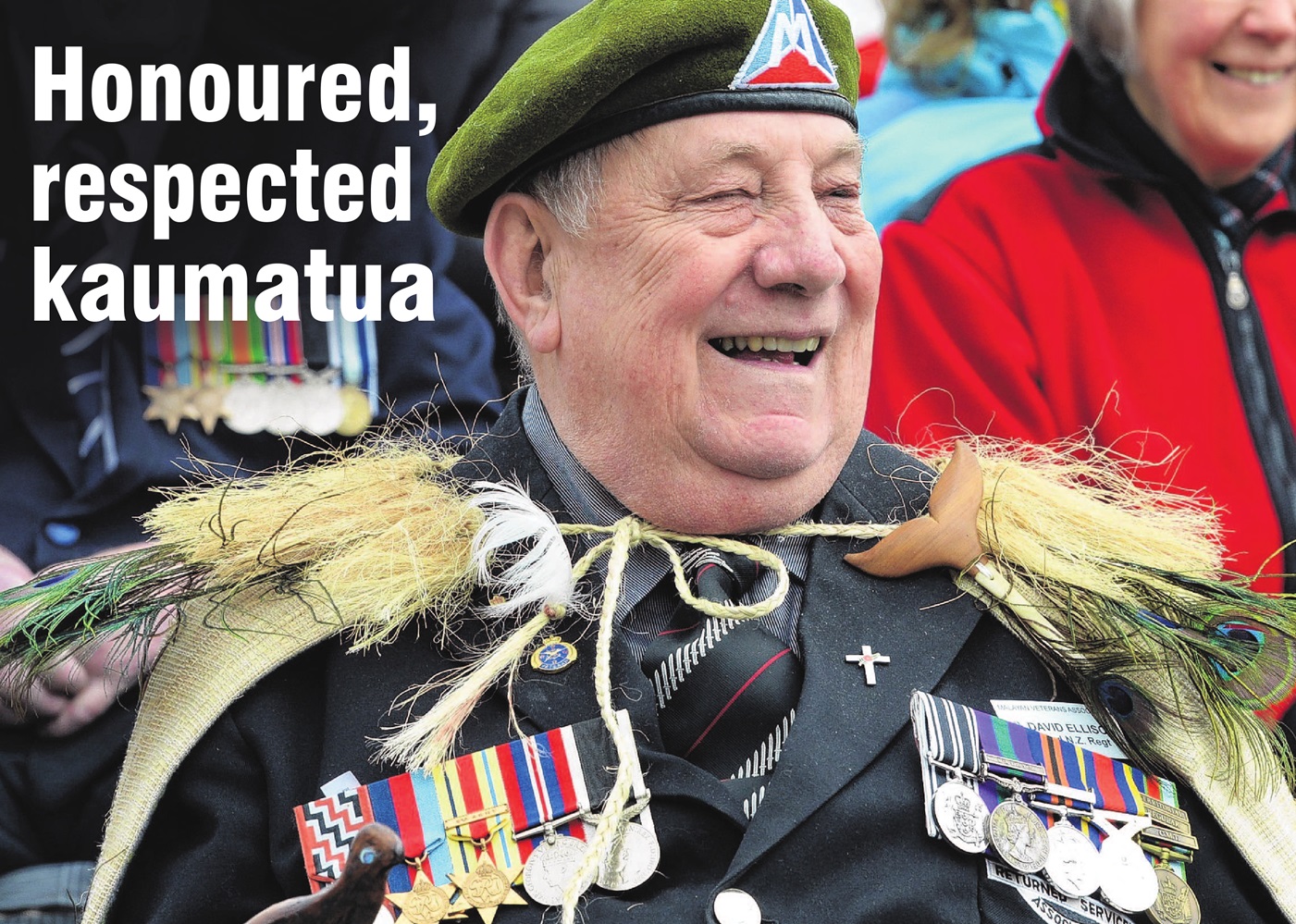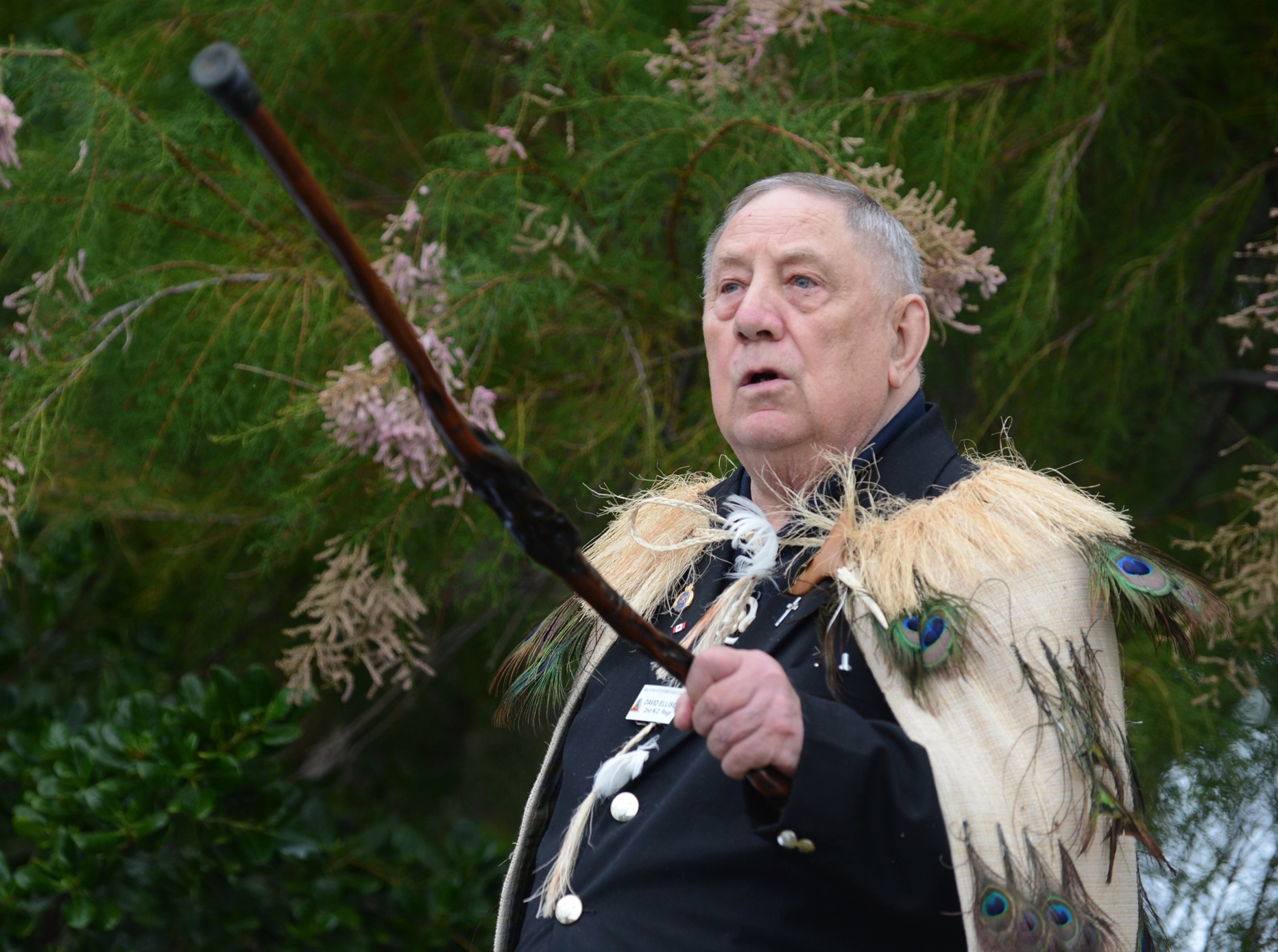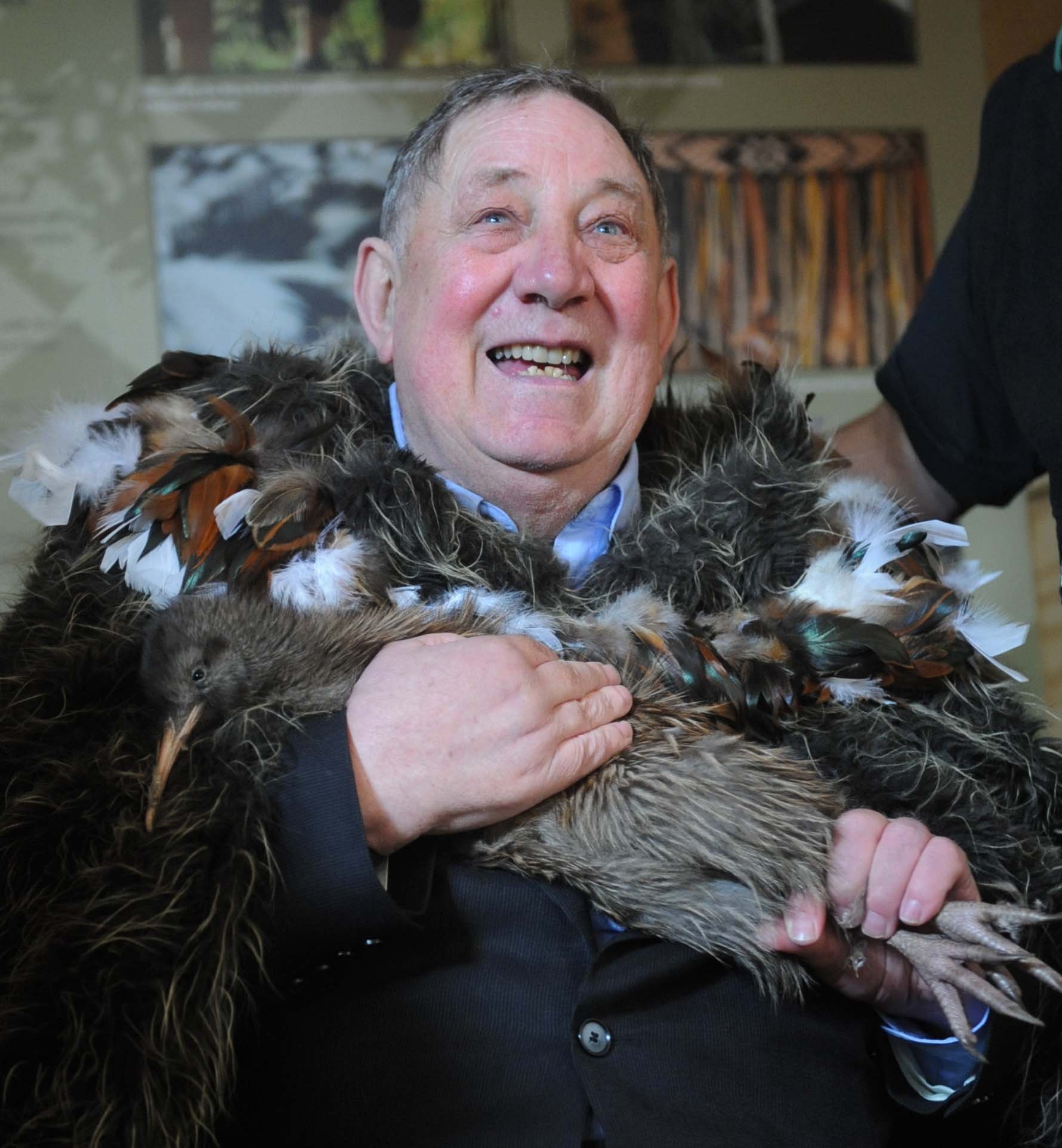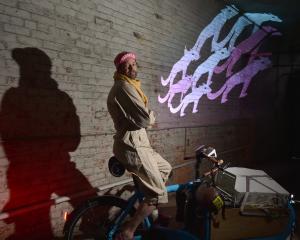
David Ellison dedicated his life to bringing people together.
Whether as a veterans advocate, as an educator, a member of many committees and organisations, as Upoko (head) of the Puketeraki marae or as a man who loved a good party, David Ellison delighted in good company, and in what like-minded people could achieve together.
His incredibly diverse CV spanned from serving in the New Zealand army in Malaya to being a school principal in the Yukon, but constants in his life were the desire to help people, and the organisational skills to make things happen.
David Tohurangi Ellison (Ngāi Tahu, Waitaha, Ngāti Māmoe, Te Ati Awa, Ngati Mutunga) was born on November 18 1936, the son of Thomas Rangiwahia Mutu Ellison (known as Mutu) and Elizabeth Dolly Taylor.
Through his Taranaki heritage David Ellison was closely connected to the line of Te Whiti o Rongomai: he was named after his fellow leader, Tohu, thus Tohurangi.
A proud member of one of the South’s most famous Māori families, the Ellison whānau, he grew up surrounded by family and very aware of his whakapapa and history.
He needed little prompting to tell the story of his father Mutu Ellison, the first Plunket baby in 1906.
David Ellison was a keen supporter of Plunket and was proud to be a kaumatua of the organisation: one of his final official acts was in November last year, when he gave a special blessing at the opening of the new Plunket hub in South Dunedin.
His own childhood was centred around the sea, and the seaside hamlet of Karitane. His earliest memories were of the local fishing fleet — the smell of cooking paua remained one of his favourite things — and playing in the nearby river at low tide.
With his father Mutu Ellison away on active service in D Company of the Maori Battalion, it was left for his anxious mother Dolly Ellison to try to supervise a horde of youngsters intent on climbing all the local trees and getting into as much mischief as possible ... although he suspected in later life that his many cousins and aunties were keeping a close eye on the young ones.
Dolly Ellison had many things to be anxious about: soon after Mutu Ellison and the Maori Battalion arrived in Greece her husband was reported missing in action.
"For six months we heard nothing," David Ellison told the ODT in 2016.

Educated at Karitane School, young David Ellison was a precocious pupil and in 1949 won a 28th Maori Battalion Ngarimu VC Scholar Inaugural scholarship to study at Te Aute College, in Hawke’s Bay. He attended there from 1950-53 and was occasionally called upon to escort dignitaries around the school, a precursor of leadership roles to come.
He returned to Dunedin to attend Teachers College and after graduation taught at several local schools, including Karitane, where his youngest brother Edward was one of his pupils.
David Tohurangi Ellison 926453, 2nd Battalion NZ Infantry Unit, followed in father’s footsteps and became a soldier, firstly doing CMT in 1957 before joining the territorial army. He transferred to the regular force in 1959 and trained at Burnham and Papakura before being shipped to Malaya later that year.
Serving mostly on the Thai-Malay border, he completed a two year tour of duty before being discharged in 1962.
He re-enlisted as a territorial later that year and was posted to the local battalion in 1965. Reactivated in 1966, David Ellison was commissioned as a platoon commander.
From 1968-71 he was attached to the Canadian armed forces, before being discharged from the New Zealand army in 1972.
A staunch army man who wore his medals with pride at Dawn Parades and veterans events, he was especially honoured to be asked to be kaumatua of the regional Returned Services Association. He wore his korowai with humility and dignity.
David Ellison married Kathleen Bradley in Dunedin in 1963. In keeping with his keen sense of adventure, in 1968 they took their children Edward (then 4) and Roslyn (then 2) off on the journey of a lifetime, to Canada — what was intended to be a short stint lasted 20 years.
David Ellison taught in Calgary and later both taught in the Yukon, near the Arctic Circle; he was principal or vice-principal at several schools.
Many of his pupils were first nations people, the Māori boy from Karitane struck up an easy rapport with them and their families.
Helping to build those community bonds was his love of music, a well-known Ellison whanau trait. A more than decent pianist, he started many a band and organised many a dance.
David Ellison and Kathleen separated in 1980. When he returned to Karitane in 1986 his girlfriend Annie, his English rose, followed him to New Zealand a year later, although he did not know she was coming.

Annie died in 2010; David Ellison was buried alongside her at Hui Te Rangiora Urupa, above the Puketeraki Marae, on February 20.
When he came back to New Zealand he was buzzing with ideas to improve marae and rūnaka; as well as his day job as a specialist tutor and rūnaka co-ordinator for the Huirapa Māori committee. He always had multiple projects on the go and thanks to his famous delegation skills was able to call on many others in the community to lend a hand.
In his role as rūnaka co-ordinator David Ellison was actively involved in the Māori Access Scheme, which aimed to educate and upskill Māori into the workforce; a canny sourcer of funding, he found the money to expand the marae, including a new kitchen and ablution block. He also played a key role in the 1990 New Zealand sesquicentennial celebrations in Karitane.
A passionate advocate of self-sufficiency, the skilled gardener with a knack of turning out perfect tomatoes organised food gathering and cooking lessons for youngsters from the marae kaumatua.
In a reflection of his life-long interest in the sea and love of kaimoana, he was instrumental in the marae’s 1992 application for a taiāpure (local fishery) on the East Otago coastline.
Kaumatua were concerned at the decrease in fish in general and paua stocks in particular. Despite a backlash from some of sectors in the East Otago community, the marae stuck to its guns and after a Maori Land Court hearing, numerous hui and public meetings the East Otago Taiāpure was gazetted in 1999.
As he aged, David Ellison, who had a keen and often self-deprecating sense of humour, became a respected kaumatua, greatly appreciated by the many communities and groups with which he worked with. He woke up each morning with the thought of how he contribute to the community that day.
Although his many years in Canada meant that he was not fluent in te reo, his mana and grace meant that he stood tall in the Māori world and his skill at managing and leading people meant that he was also highly esteemed in the non-Māori world.
As well as being kaumatua for the interfaith community, the multi ethnic group, the RSA and Plunket, he gave his time and wisdom to many other enterprises, including being a disabilities advocate and supporter of refugee resettlement.
A supportive advocate for local environmental issues, David Ellison was a keen and early supporter of the Orokonui ecosanctuary.
He wholeheartedly supported its vision and provided strong leadership and a voice for mana whenua for the organisation. He was present for many significant occasions at the sanctuary, including the first release of tīeke into the valley in 2009.
Although he moved around a fair bit in his final years, including a short stint near Ros’s family in Paraparaumu, the South was always home, in particular the North East Valley. He was a regular at NEV events and had a close relationship with George St Normal school.
A unifying figure who brought people together, a man of love, faith and peace, David Ellison died on February 15 at the Otago Community Hospice aged 88.
His iwi, Ngāi Tahu, paid David Ellison a handsome tribute, kaiwhakahaere Justin Tipa saying that his life was dedicated to service.
"He was an educator and historian who strongly believed in the importance of community and promoting connections between people, regardless of their backgrounds." — Mike Houlahan












